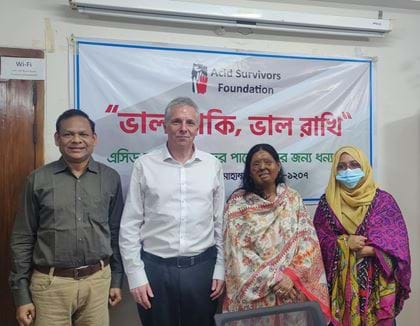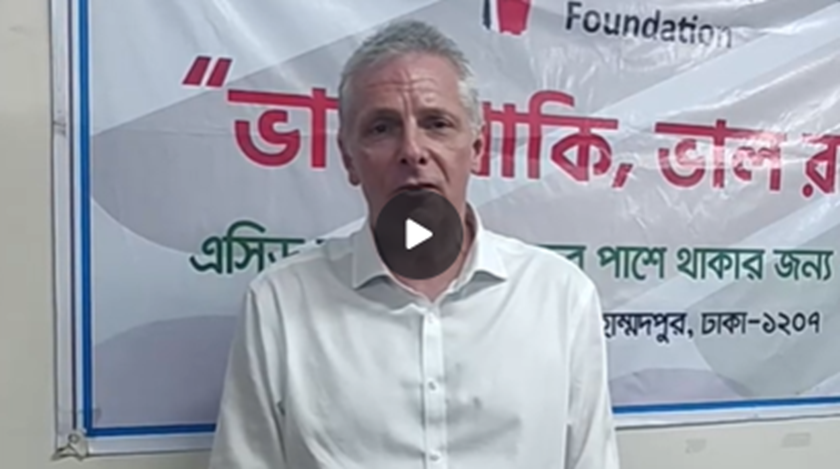Growth in Bangladesh

I had the chance to visit Bangladesh in March, meeting some of our fantastic partners, impressive programme participants and many of our friends and supporters in the country.
I had a brilliant meeting with the British High Commissioner Sarah Cooke, British Asian Trust’s Bangladesh Advisory Council members Farooq Sobhan and Shayan Rahman and the Climate Innovation Fund committee Chair, Mr Arif Khan. Each person I met had great feedback about our growing work in the country, and was more importantly, excited and focused on future plans for the Trust’s ambitions in Bangladesh. Our strategic focus moving forwards will be on driving private sector growth in climate space and building on our Mental Health programmer.
In climate change, we are implementing programmes that address the gap in climate innovation and financing which is vital to drive private sector growth in the climate space which consequently will strengthen climate resilience in the country. In mental health we are bringing in mental health initiatives that are integrated within workplaces and communities and address the massive gap of adequate and affordable mental health support facilities available.
It is to this end that we recently launched our new mental health project with the Acid Survivors Foundation (ASF). Acid and burn violence is primarily a form of gender-based violence in South Asia. There are around 4,000 acid attack survivors in Bangladesh, nearly two-thirds of them are women. As well as having physical scars to remind them of the attack, survivors also have emotional and mental trauma to overcome. This can lead to struggles to integrate back into society. Severe depression, suicidal tendencies, social anxiety are common amongst survivors. Emotional and mental health support is critical at almost every stage of their lives. This is why the Trust has co-developed a specialised training model focused on trauma counselling that takes into account biological, psychological and social factors for survivors. This model will train and support counsellors at the community level. These trained individuals, who themselves are acid survivors will offer emotional and mental support to fellow survivors of acid and burn violence.
I had the opportunity to meet survivors when I visited ASF and left with no doubt about the importance of offering support to this work. With the proper mental health support we can help people restart their lives and reintegrate into society who have suffered crippling trauma. The smiles and strength shown by many I met was inspirational.
This is the latest initiative in our Mental Health programme in Bangladesh and follows on from our work with Primark, supported by SAJIDA Foundation, to provide mental health first aid to garment factory workers. Our work in South Asia aims to reduce stigma, build awareness, increase access to mental health services, drive systemic and policy change and support the vulnerable through trauma rehabilitation and counselling.
I look forward to returning to Bangladesh soon to report back on the smiles your support has helped us put back on people’s faces.
By Richard Hawkes, Chief Executive British Asian Trust

